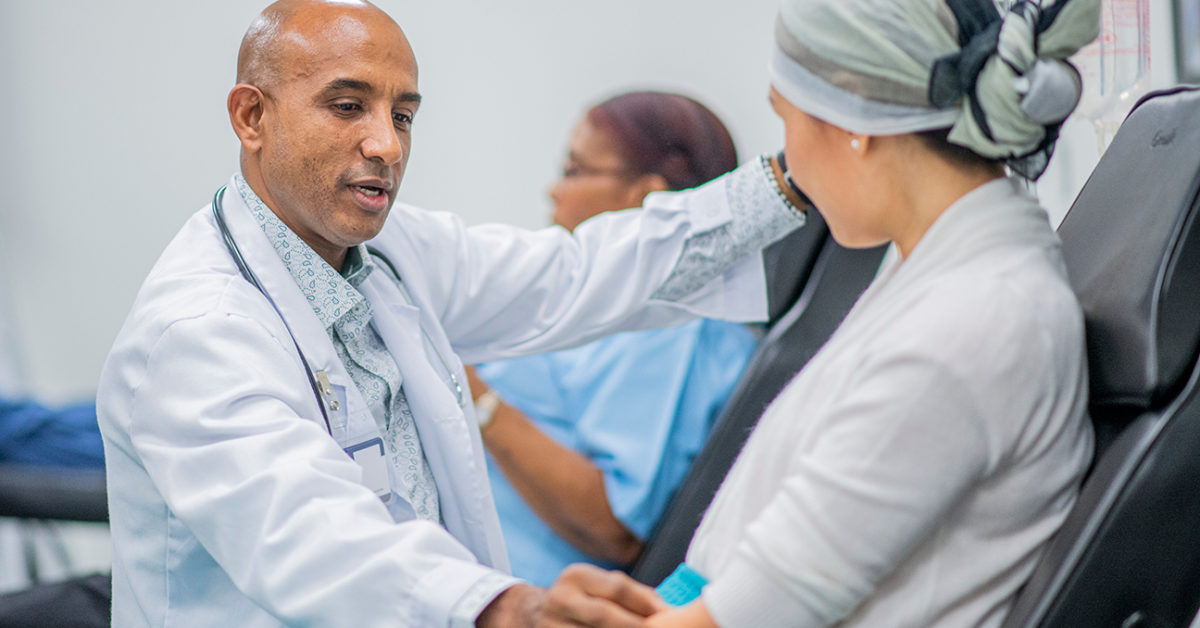When to Refer Patients to an Oncologist: Guidelines for Physicians

Many people are unaware of when they should be referred to an oncologist. This is because the decision to see one should be based on many factors, including the type and stage of cancer, as well as the person’s overall health. In this blog post, we will discuss when patients should be referred to an oncologist and what factors play into that decision.
- What is an oncologist and what do they do?
An oncologist is a doctor who specializes in diagnosing and treating cancer. They use a variety of methods to do this, including surgery, chemotherapy, radiation therapy, and targeted therapy. Patients may be referred to an oncologist at any stage of their cancer journey, from diagnosis to treatment and beyond. More often than not, local walk in clinics and doctors will be able to provide you with a referral if needed. If you are based in the city of Brampton or General Toronto Area we recommend reaching out to the Aries Medical Centre if you need a referral from a credible doctor in Brampton.
- When should patients be referred to an oncologist?
There are a few different reasons why a patient might be referred to an oncologist. If a primary care physician suspects that a patient has cancer, they will likely refer them to an oncologist for further testing and treatment. Patients who have already been diagnosed with cancer may also be referred to an oncologist for treatment. Lastly, patients who have completed treatment for cancer may be seen by an oncologist for follow-up care.
- What factors play into the decision to refer a patient to an oncologist?
There are a few different factors that play into the decision to refer a patient to an oncologist. The type and stage of cancer is one factor. For example, patients with more aggressive cancers may be referred to an oncologist sooner than those with less aggressive cancers. Another factor is the person’s overall health. Patients who are in good health may be able to tolerate more aggressive treatments than those who are not. Lastly, the preference of the patient and their family should also be taken into account.
- What are some of the common treatments that oncologists provide?
Oncologists provide a variety of treatments for cancer, including surgery, chemotherapy, radiation therapy, and targeted therapy. They will work with the patient to develop a treatment plan that is right for them.
If you or someone you know has been diagnosed with cancer, it is important to talk to your doctor about all of your treatment options. An oncologist can provide you with the specialized care that you need to fight cancer.
Cancer is a difficult journey, but you are not alone. There are many resources available to help you through this time. The American Cancer Society can provide you with information and support. You can also find more information about cancer at the National Cancer Institute website.
- What are some of the common side effects of cancer treatments?
The side effects of cancer treatments vary depending on the type of treatment. Common side effects of surgery include pain, swelling, and bruising. Common side effects of chemotherapy include nausea, vomiting, and hair loss. Common side effects of radiation therapy include fatigue, skin irritation, and diarrhea. Targeted therapy can cause a variety of side effects, including skin rash, diarrhea, and fatigue.
Cancer treatments can be difficult to tolerate, but it is important to remember that they are often lifesaving. Talk to your doctor about ways to manage the side effects of your treatment.







